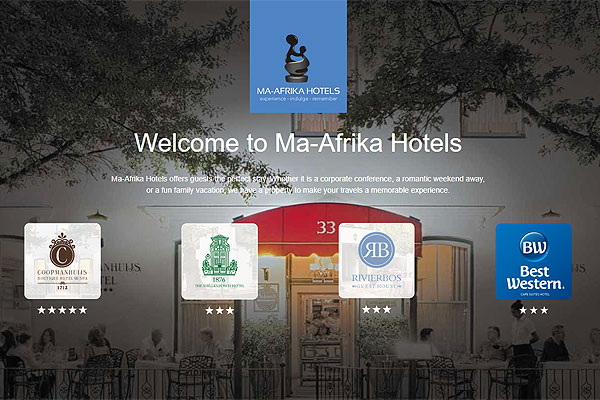As a result of the pandemic and Government’s lockdown, occupancy at the guest house from April to August 2020 was zero; and then, under subsequent National Disaster Alert Levels, it could only accommodate guests on a restricted basis from 18 August 2020.
CAPE TOWN – Ma-Afrika Hotels, one of many South African hospitality groups severely impacted by COVID-19 related Governmental restrictions, has launched an application for leave to appeal to the Constitutional Court against an eviction order brought by its landlord, arguing that the pandemic, Governmental restrictions and lockdown made it impossible for Ma-Afrika to pay rent for this period.
The application for leave to appeal has suspended the eviction order pending the outcome of the Constitutional Court hearing. Ma-Afrika has instructed Adv Jeremy Gauntlett KC SC as leading silk, together with Adv G. Elliott SC and Adv G. Samkange, instructed by Thomson Wilks Attorneys to represent it in this matter.
Ma-Afrika’s appeal application follows its landlord, Venezia Trust, taking it to court in February 2021 to seek an eviction order over Ma-Afrika’s inability to pay rent for its guest house during the pandemic. Ma-Afrika had a 10-year lease agreement with Venezia Trust in respect of the guest house, for which it had scrupulously paid rent from when the lease commenced in April 2019 up to lockdown in March 2020. The Supreme Court of Appeal handed down its judgment on 4 November 2022, referring the claim for arrear rental back to the Western Cape High Court for determination.
Ma-Afrika contends that a grand-scale disaster in the form of a pandemic was not in the contemplation of the parties when the lease agreement was signed, and that the enforcement of the lease, and the eviction notice, were against public policy and unconstitutional.
As a result of the pandemic and Government's lockdown, occupancy at the guest house from April to August 2020 was zero; and then, under subsequent National Disaster Alert Levels, it could only accommodate guests on a restricted basis from 18 August 2020. The pandemic, Government restrictions regarding travel, and the negligible income it received from September to December 2020, made it objectively impossible for Ma-Afrika to meet the full cost of rental during this period.
Ma-Afrika is placing a novel legal question before the Constitutional Court, which is to allow a tenant, in the interests of justice, to raise partial remission of rent as a defence at the time when a landlord seeks to evict a tenant for non-payment of full rent. Common law currently does not allow this defence.
The current matter follows Ma-Afrika’s two-year legal battle against insurer Santam to honour its COVID-19 business interruption insurance claims, Santam finally paid out these claims in February 2022 (by which time Venezia Trust had already cancelled the lease). Ma-Afrika won a precedent-setting judgment in October 2020, when the Western Cape High Court found that Santam was liable to honour Ma-Afrika’s full 18-month business interruption insurance. This judgment was confirmed by the Supreme Court of Appeal in October 2021. The Court’s landmark decision was crucial for thousands of desperate tourism and hospitality businesses whose COVID-19 business interruption insurance claims had been rejected by Santam and other insurers.
The COVID-19 pandemic and Government’s response had a devastating impact on the tourism and hospitality industry, and the average occupancy rate for the industry stood at 13,08% for the period June to December 2020. The sector, which employs 1.5 million people and contributes 8.6% to South Africa’s economy, all but collapsed as the country buckled under the strain of the pandemic.
Ma-Afrika contends that like all hospitality businesses, they were crippled by the pandemic and the unprecedented lockdown restrictions. Its doors were shut for months, and when allowed to open again, it was under severe restrictions, which had a profound impact on the business. In fact, it was only in June 2022 that the State of Disaster and all related restrictions were lifted. Numerous hospitality businesses had closed, and many retrenched their staff. Ma-Afrika was determined to save jobs, and so it deployed all available resources to ensure that its employees could survive the pandemic.
Ma-Afrika’s current appeal to the Constitutional Court is part of this effort to avoid staff retrenchments – which may well have industry-wide effect, similar to the precedent-setting judgment against Santam.
Vicky is the co-founder of TravelDailyNews Media Network where she is the Editor-in Chief. She is also responsible for the daily operation and the financial policy. She holds a Bachelor's degree in Tourism Business Administration from the Technical University of Athens and a Master in Business Administration (MBA) from the University of Wales.
She has many years of both academic and industrial experience within the travel industry. She has written/edited numerous articles in various tourism magazines.
























































































































































































